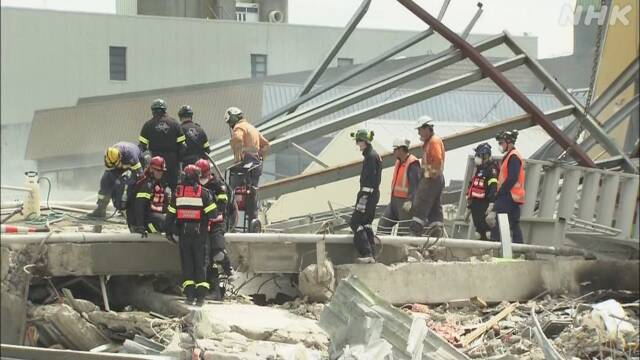It's been 10 years since the earthquake in southern New Zealand, which killed 185 people, including 28 Japanese.
Since the entry of foreigners is prohibited in principle due to the influence of the new coronavirus, the participation of bereaved families from Japan will be postponed at this memorial ceremony.
A magnitude 6.3 earthquake in southern New Zealand on February 22, 2011, killed 185 people, including 28 Japanese, due to the collapse of a building containing a language school in central Christchurch.
On the 22nd, 10 years after the quake, a memorial ceremony will be held in Christchurch with the participation of Prime Minister Jacinda Ardern and his bereaved family. Silence at 0:51 pm local time and 8:51 am Japan time. Is offered.
The bereaved families of Japanese victims also participate in the ceremony every year, but in New Zealand, foreigners have been banned from entering the country since March last year in order to prevent the spread of the new coronavirus, so this is Japan. Participation of the bereaved family from will be postponed.
The ceremony will be streamed live on the Internet.
It has been confirmed that the collapsed building had a serious structural defect over the quake, and Christchurch Mayor Darjeel acknowledged the city's moral responsibility and injured bereaved families, including Japanese, last year. I formally apologized to the people.
A circle of mutual help that has continued since the time of the earthquake
After the earthquake, local university students set up a group in Christchurch to clean up debris, but even now, ten years later, they continue to volunteer and expand their circle of help.
The founder of this group, named "Student Volunteer Army," Sam Johnson, 32, was a student at the University of Canterbury at the time of the quake.
As a result of witnessing the damage and calling on friends to cooperate with SNS saying "I want to help the community with students who have time and physical strength", about 11,000 people gathered to clean up debris and clean up broken houses and roads. Repair work was done.
“It was a terrible disaster, but for us as students, it was an opportunity for us to realize that we can help the community and help people,” recalls his experience at the time.
When the Great East Japan Earthquake struck the month after the earthquake, Johnson and his colleagues headed to the Tohoku region to take advantage of their experience in New Zealand and helped clean up debris in the affected areas.
When outing restrictions were introduced as a countermeasure against the infection of the new coronavirus from March to April last year, we took over the purchase of food to support elderly households.
In addition, we are cleaning and planting trees in various places, and the total number of students who have participated in the activities so far is 160,000, making it the largest student volunteer organization in Japan.
"It is important to look forward and make use of what we have learned from the earthquake to build a better country," said Johnson, who thinks that helping each other is especially important now that the world is affected by the new coronavirus. I did.

